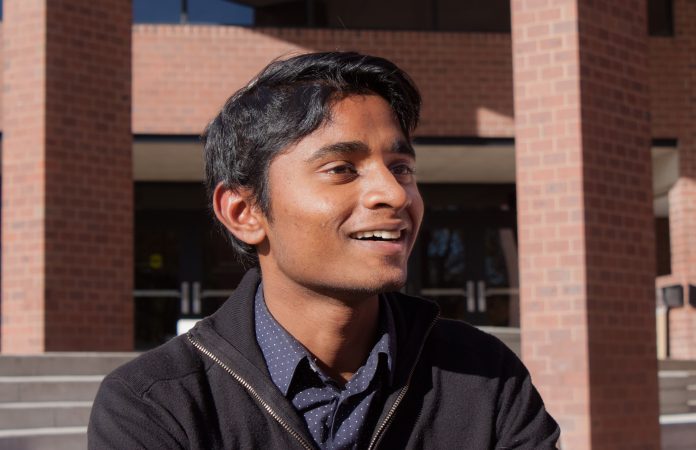
Caleb Latas
Staff Reporter
clatas@jccc.edu
Ilan Horesh, student, has been changing cultures since he was five-years-old.
“I was born in India. I [was adopted and] moved to Alaska when I was five years old,” says Horesh. “And then from there we relocated to [Overland Park]. I lived here for about eight years, and then my family stayed here and I went to Israel for all of high school.”
Going Back to Israel
Horesh is Jewish and though he was born in India, he wanted to go home, to the homeland of his new culture and people.
“I’m Jewish, [Israel] is where we are supposed to be, anyways, our religion is really connected to that place,” Horesh says. “I have family there and I wanted to learn abroad. I was done with Kansas.”
When Horesh moved here from Alaska his father home schooled him and his siblings.
“He taught me everything, all the subjects I needed to learn, and he was a pusher, so I became more advanced in all the subjects,” says Horesh. “So when I went to Israel I was caught up with everyone else, because over there their academics are higher than here.”
Back in Overland Park
Horesh says he enjoyed his being in Israel, but because he went to school there he is an official citizen of of Israel and all male citizens are required to serve for two years and eight months in the military.
“I’m only here to visit my family before I have to draft. I am now an Israeli citizen, and I have Indian citizenship, and U.S. citizenship,” says Horesh. So I have to serve over there for two years, eight months. [After my service] they will subsidize my college education.”
Horesh leaves after this semester to go back to Israel.
“December 16th I have to go there, but my draft date is March,” says Horesh. “So I have three months and I’ll stay with family. [And then I’ll have] eight months of practice and training, and then two years of actual service.”
Horesh says he doesn’t mind having to serve in the military. For him, he says it’s what seems normal.
“I don’t think about it, in Israel it’s mandatory,” says Horesh. “Let’s say in america it was mandatory then you wouldn’t really care, cause you are going with your friends and you’re going for only two years and eight months.”
Horesh says he plans on staying in Israel to finish his college education after his mandatory service.
“They pay for my education, so why not?” says Horesh. “Right now the college I want to go is Technion. I want to learn aerospace engineering or mechanical [engineering]. I also want a business degree.”
Welcome Home
Horesh says he has fully assimilated into the Israeli culture, but for him, it wasn’t that difficult to do. He was already accepted and a part of the culture before he even arrived there.
“People of all backgrounds live there,” says Horesh. “Whether you are Jewish, Christian or Muslim, you are accepted for who you are. You have immigrants from the Holocaust and they’re ‘white,’ and you have Ethiopians who are Jewish also, you have Morocans, Iranians, Indians, it’s a whole culture port. It’s just a mixture. You just have everything in Israel. I don’t know if you will find else like it in the world.”
Horesh is now part of a new culture — not just the Jewish culture, but the culture of Israel as well. Horesh is used to diving into new cultures though. Since he was five, he has been moving into new cultures. He moved from the Indian culture to the American culture of Alaska, then to the culture of Overland Park and then to Israeli culture.
“My culture in India, I don’t remember it 100 percent, but I do have memories of it because I left when I was five,” says Horesh. “When I came to America I immediately wanted to dissolve into the American culture, so I forgot both of the first two languages I spoke: Marathi and Hindi. Looking back at it, it wasn’t a good Idea.”
Horesh dropped his native languages for English, he dropped his heritage, so that he could really become American. He says he wanted to fit in, but in America, unlike Israel, you still get viewed as an outsider.
“I didn’t really think about my Indian culture at all. Once I came to America I was an American,” says Horesh. “You don’t think about it at all, but everyone knows that you were part of a different culture. And then when you come here you think you’re part of the culture, but sometimes they won’t think the same. So you aren’t sure.”
In Israel, Horesh says he felt like he belonged immediately. He didn’t feel like an outsider anymore, he felt welcomed.
Horesh says, “I was a real shocker, but once you felt it you were like ‘wow, I’m here.’”





















